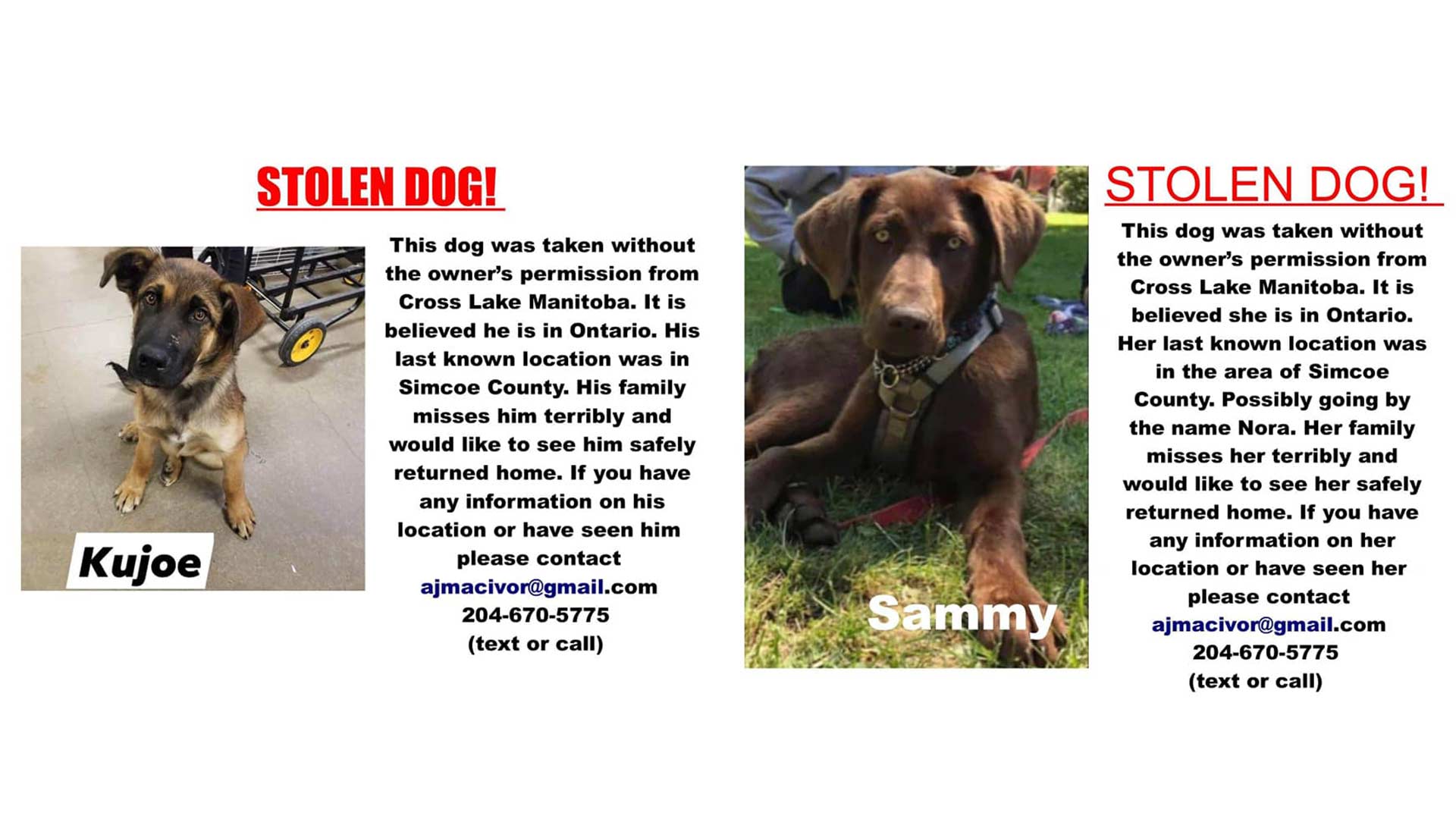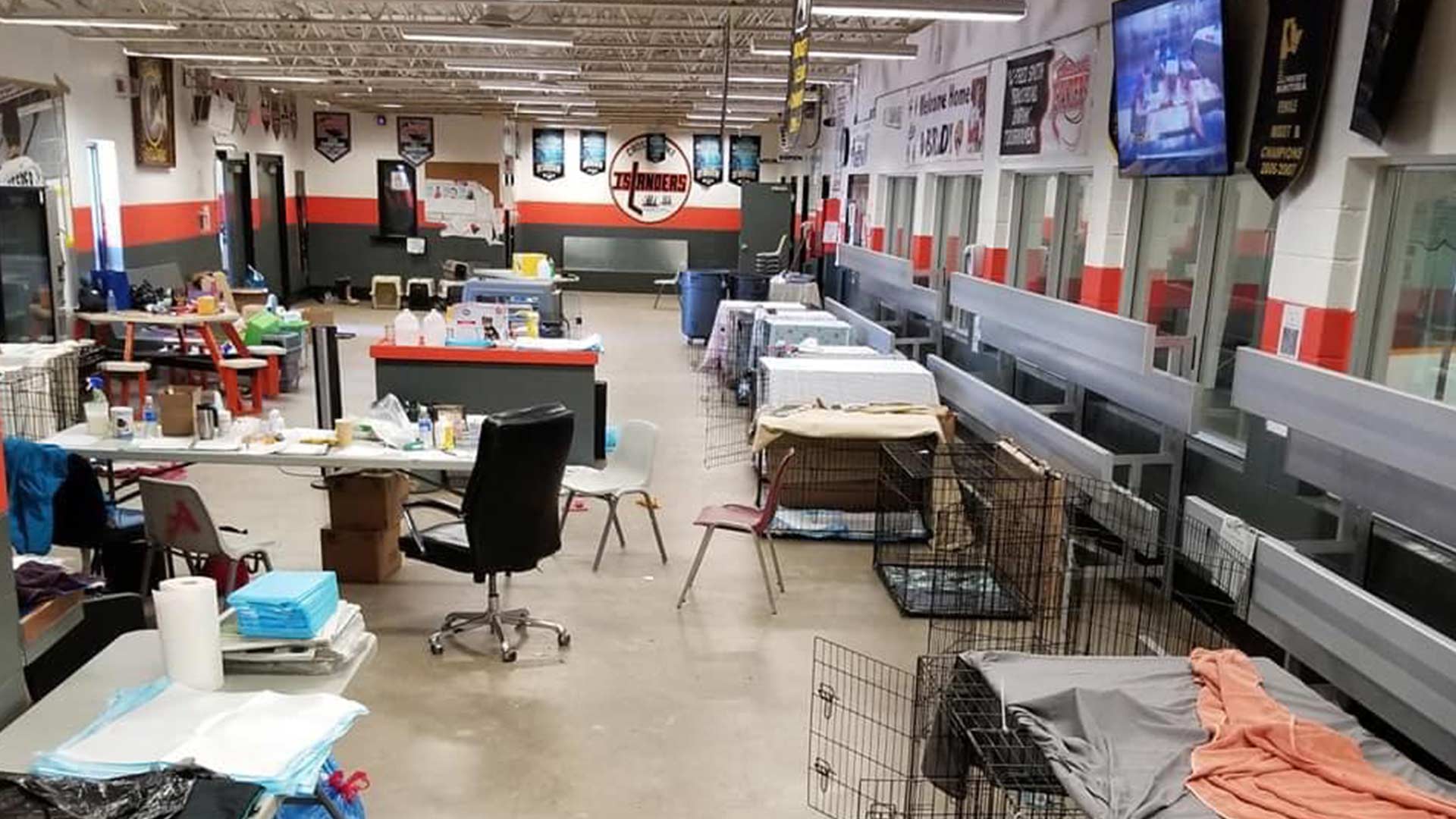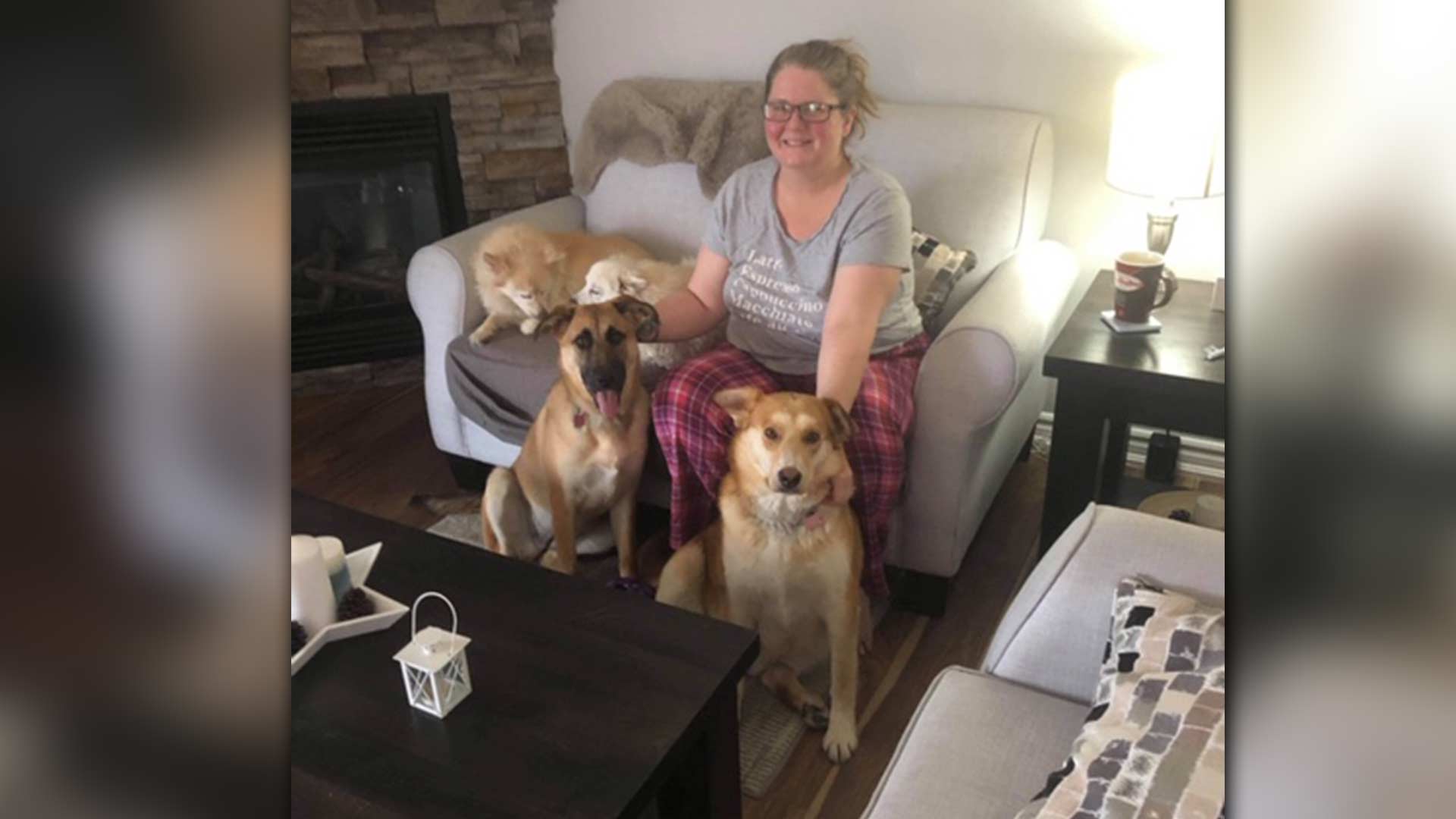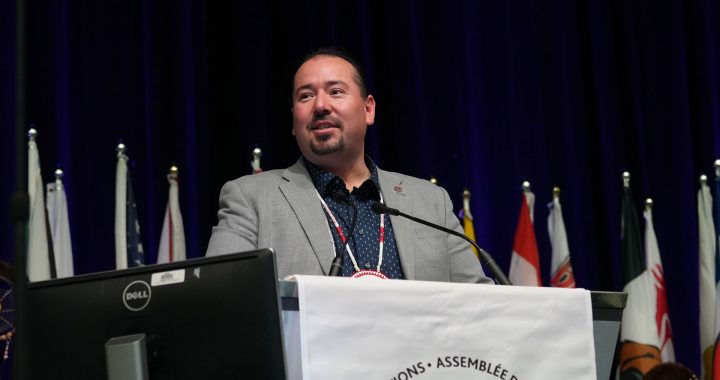In northern Manitoba, 11-year-old Reyna McLeod is searching for her missing dog, Kujoe.
She’s also made a few Facebook videos about the German Shepherd mix, who disappeared from Pimicikamak Cree Nation the same time Lost Boys Hope (LBH) dog rescue was there on June 4.
The Ontario-based volunteer group left June 5 with 40 stray and surrendered dogs, and claims Kujoe wasn’t among them.
“The family has mistakenly identified several different dogs to be him,” says LBH founder Kelley Ward of Barrie, a small city about 80 km north of Toronto.
“The pictures that they sent don’t match up to the dog that we have here.”
Ward confirmed she partnered with Debra Vandekerkhove of Manitoba Animal Alliance (MAA) to “pull” unwanted dogs from the community, also known as Cross Lake, and says MAA made the mistake.
“They didn’t follow the protocol,” Ward says.

Vandekerkhove agrees errors were made that led to two family pets – Kujoe and a brown Labrador Retriever named Sammy – being wrongly removed from the community.
“These dogs need to come home,” says Vandekerkhove, who is offering to bring the dogs back to Manitoba. “Period.”
McLeod has been scouring Pimicikamak for Kujoe – whom she calls her “best friend.”
She enlisted one of her teachers, Andrea MacIvor, and the health director of Pimicikamak, Helga Hamilton, to help.
“One of these dogs belongs to one of my students,” says MacIvor. “She’s a good kid and loves her dog.
“It’s been a month and her dog and another owned animal are still not back. The ‘rescue’ that took them are asking for the costs of their vetting fees.”
“We consider the dogs stolen,” adds Hamilton, “because neither owner signed over a relinquish form.
“Poor little Reyna. She was out on her bike, driving around, looking around – calling out for her dog.”

Pimicikamak is about 770 km north of Winnipeg. Hamilton says she works with the services provided by off-reserve animal welfare groups to improve community safety.
Because First Nations don’t have veterinarians, she says the groups promote responsible pet ownership by hosting spay and neuter clinics, and remove unwanted and stray dogs that can form packs and endanger people.
“This kind of mix-up hasn’t happened before,” she says. “We have a protocol.”
Here’s how that process is supposed to work: The band office advertises when a group is coming in and warns members to keep pets tied up or inside during this time. Pet owners can also surrender their animals to the group.
Pictures of all dogs taken are posted online, but that didn’t happen this time.
Ward says she’s been “pulling” dogs from Pimicikamak for about four years. This is the first problem of this kind, she adds.
“The rescue should never be leaving the community until its done I personally should have checked it was done and not counted or trusted another person to do it as they said they would…,” she says in an email.
“This is the most important thing so these accidental pick ups and this mess doesn’t accord. Think its a protocol all rescues should follow through with to protect the owners. If this had been done properly in this case we would not be here.”
Watch Reyna’s video here:
It’s the second time this summer APTN News is reporting on problems involving an animal rescue group.
Many of these groups are run by volunteers and operate mostly on Facebook, where they advertise dogs available for adoption and solicit donations. Ward’s group charges about $600 per adoption.
APTN has learned there is no official oversight of rescue groups in Manitoba. Animal health is the responsibility of the provincial veterinarian, Dr. Scott Zaari, who was not made available for an interview.
Ward confirmed her group did have Sammy, the Lab, but says the foster family in Barrie was refusing to release her due to health concerns.
“The dog was brought in in a very poor body condition, full of parasites…,” she says.
“We treated her for eye infection, ear infection, tapeworms, we did x-rays for a limp, we did a urinalysis, we did all of this other stuff to get this dog into great shape and the family has offered nothing to help us recoup these funds that we put into this dog.”
Ward says she is also bound by the animal care act to keep a dog away from a potentially harmful situation.

She denies her group has Kujoe, Reyna’s dog.
“They’re Shepherds, they’re similar but they’re very different as well,” she says of the dog in question. “The picture that they’re circulating on the lost poster is not the same picture that I was sent.”
Ward says Reyna’s family “can’t 100 per cent” identify the dog she has as theirs.
“They want me to send the dog back so they can see and I don’t think that’s very fair unless they can properly identify their own dog. They can’t produce any other photos of the dog,” she says in an interview.
The dispute has cost LBH one dog foster parent in Barrie.
Colleen Howe says she resigned earlier this month after learning about the mixup with Kujoe through social media.
“I felt concern for the little girl who is missing her dog,” says the registered nurse. “A minor child is suffering psychological distress.”

Howe says after she gave up her foster position, Ward sent a Barrie police officer to her home to retrieve Mellow, a dog from an earlier trip to Pimicikamak, from her care.
A spokesperson for Barrie Police confirmed the call.
“It looks like there was a misunderstanding over the arrangements to return a foster dog,” according to spokesperson Jennett Mays. “We attended to keep the peace, and there were no issues.”
Hamilton, meanwhile, says she is reconsidering Pimicikamak’s relationship with LBH because of the delay in getting the dogs back.
“If she’s going to be like that I will have her banned from the north,” says the health director.
“She gives a bad name to these groups who are actually out here doing the good, doing the helping.”
Ward says she sent a video to Reyna’s family showing the foster parents calling Kujoe and the dog not responding.

She told APTN she’s willing to provide more videos and photos of all the Shepherds taken to Barrie.
“I have been willing to show any pictures or video to the family and suggested it several times…to help the family with identification,” she says in an email.
But, “I feel that with all the opinions and Facebook circus” they will say that it is him even it’s not.
“Neither of us at this point can trust the right thing will be done.”
Ward says she pulled more than 90 dogs from Pimicikamak in September 2019 without surrender forms. So why would June 2020 be any different?
“Everyone is going on about surrender forms including Debra,” she notes in an email. “I would like to know where the surrenders are for the dogs I have ever pulled from her to date which is in the hundreds if that is her protocol?”
Ward says “for this to never happen again” the rescue groups and communities “need a fool proof system across the board to prevent these mistakes.”
READ MORE Rescue gone wrong: Pickles, puppies and a dispute over a dog
Vandekerkhove referred specific questions to Hamilton, whom she said was handling the issue, after providing this short statement:
“We support Pimicikamak community and remain supportive in all means possible to continue our relationship, and to assist where needed, in the return of the two dogs in question,” she says in an email.
“Mistakes happen. Miscommunication happens. It is what we do with those situations that defines our relationships and alliances.”
UPDATE: Story was updated to change spelling of Kujoe’s name.










